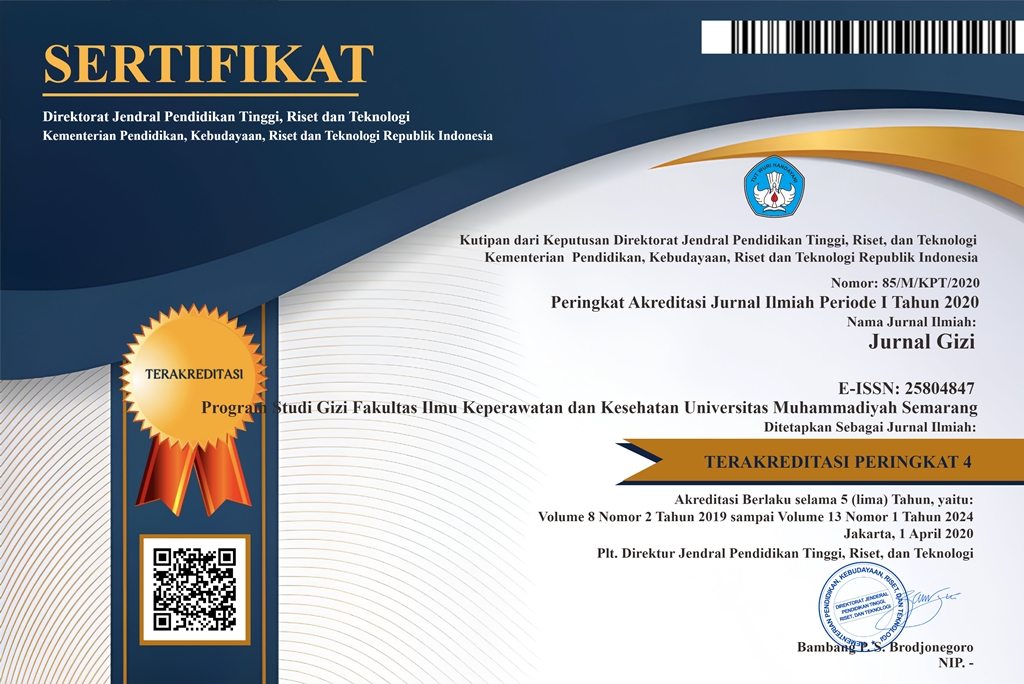Gambaran Sumbangan Zat Gizi Makro Sarapan Pagi pada Remaja Putri di Pondok Pesantren Kh. Sahlan Rosjidi Universitas Muhammadiyah Semarang
(1)
(2)
(3)
(*) Corresponding Author
Abstract
In adolescents often the intake of nutrients is not sufficient, especially at breakfast, because of intense physical activity, the unavailability of food ingredients and the desire to get an ideal body. Breakfast is expected to meet the needs of macro nutrients in energy, protein, fat and carbohydrates. Availability of breakfast in the morning is important for the first hour of activity. The aim of the study was to determine the contribution of energy, protein, fat, and carbohydrates.
This type of research is descriptive research. A sample of 67 students in the Islamic boarding school of KH. Sahlan Rosjidi Unimus that fits the criteria. Respondent samples were taken randomly from a total number of 201 students. The data collection tool uses the form in the form of a 24-hour recall. Data analysis is done univariately.
The results showed, the average energy intake was 312.55 ± 145.57 kcal. The average contribution of energy samples was 47.98 ± 21.67% with categories less than needed. The average protein intake was 14.60 ± 10.03 g, and the average protein contribution was 86,862 ± 57.71% with a category less than the need. The average fat intake was 14.44 ± 7.91g, the average fat contribution was 66.26 ± 35.94% with a category less than the need. The average carbohydrate intake was 53.72 ± 36.93 g, the average carbohydrate contribution was 60.94 ± 42.42% with a category less than needed. Breakfast is recommended at 06.00-08.00 and meets 15-30%.
It is recommended to students in the KH. Sahlan Rosjidi Unimus in order to have breakfast in the morning to fulfill his nutritional needs in the morning.
Keywords: Breakfast, students, Macro Nutrition Contribution
Full Text:
PDFArticle Metrics
Abstract view : 263 timesPDF - 41 times
DOI: https://doi.org/10.26714/jg.9.2.2020.%25p
Refbacks
- There are currently no refbacks.
Diterbitkan oleh: Program Studi Gizi (D3 dan S1)
Fakultas Ilmu Keperawatan dan Kesehatan
Universitas Muhammadiyah Semarang
Sekretariat: Jl. Kedungmundu Raya No. 18 Semarang
Contact Person : Hapsari Sulistya Kusuma, S.Gz, M.Si (+62 85 6 41 536 553)

This work is licensed under a Creative Commons Attribution 4.0 International License.









.png)
.png)